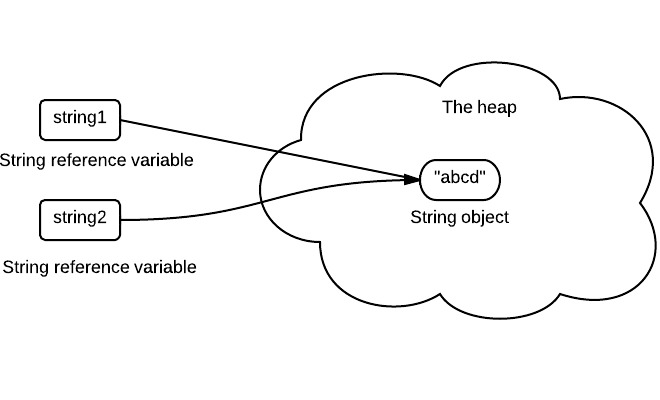Discovering the Benefits of Immutable Strings in Modern Programs Paradigms
In the world of contemporary programming standards, the idea of unalterable strings stands as a foundation of robust software application development. By embracing unalterable strings, developers can make sure improved information honesty, boosted string security, simplified debugging processes, raised safety and security steps, and effective efficiency optimization.
Enhanced Information Integrity

By avoiding the modification of string items, immutability removes the danger of unintended changes to the data they hold. This not just improves the security of the info but also enhances the integrity of the code that relies on these strings.
Immutability additionally supports more secure multithreading environments, as concurrent access to unalterable strings does not posture the risk of information corruption through simultaneous modifications. This residential or commercial property simplifies the procedure of handling strings in identical programming scenarios.
Essentially, immutability functions as a safety shield around the data saved within strings, improving their honesty by guaranteeing that once defined, their worths remain unchanged throughout the program's implementation.

Enhanced Thread Safety
Unalterable strings enhance the thread security of programs by guaranteeing that when a string item is developed, its worth can not be customized. This residential property gets rid of the threat of concurrent strings trying to modify the exact same string simultaneously, which can cause information corruption or irregular states in the program - Why are strings immutable in Java?. In a multi-threaded atmosphere, where numerous threads accessibility and manipulate data all at once, the immutability of strings gives a degree of safety by ensuring that the information stays unmodified throughout its lifecycle
Simplified Debugging Procedures
Provided the improved string safety assisted in by immutable strings, a substantial advantage occurs in the realm of simplified debugging processes. Immutable strings, once created, can not be altered, making it less complicated to map the circulation of data and determine the source of bugs in a program. This immutability guarantees that strings continue to be constant throughout the execution of the program, minimizing the chance of unforeseen modifications that can cause errors.
When debugging with mutable strings, designers usually experience issues where a string's value is modified unintentionally, making it challenging to identify the source of a pest. Nonetheless, with unalterable strings, the information remains the same, permitting designers to focus on examining the real reasoning of the code as opposed to locating where and when a string was changed incorrectly.
Additionally, immutable strings simplify the debugging process by enabling easier reproduction of insects. Considering that unalterable strings do not transform state, programmers can recreate and research bugs more effectively, leading to quicker recognition and resolution of issues within the codebase. This streamlined debugging workflow inevitably adds to greater software program high quality and boosted total advancement efficiency.

Enhanced Protection Actions
Enhancing data defense and strengthening system honesty, the application of immutable strings in software applications contributes dramatically to raised protection steps. Immutable strings, once created, can not be changed, supplying a crucial protection versus harmful tampering or unauthorized gain access to. By making certain that delicate information kept in strings remains unaltered throughout the program's implementation, the threat of data breaches or shot assaults is considerably lowered. Why are strings immutable in Java?. Immutable strings also play a vital function in avoiding typical protection susceptabilities such as barrier overflows and SQL injection strikes, as efforts to manipulate string information at runtime are inherently restricted.
Additionally, the immutability of strings enhances the predictability of program habits, making it easier to confirm inputs and avoid unanticipated modifications that could jeopardize security. This predictability simplifies the procedure of auditing and validating code, allowing programmers to determine potential security loopholes better. Overall, incorporating unalterable strings into software application advancement techniques not only improves the toughness and integrity of applications but likewise strengthens their strength against protection threats.
Effective Efficiency Optimization
When dealing with mutable strings, operations like concatenation or substring development look at these guys frequently result in the development of brand-new string objects, leading to memory overhead and enhanced processing time. By allowing strings to continue to be constant and stable, unalterable strings facilitate far better memory administration and caching chances, ultimately enhancing the general effectiveness of the software.
Since immutable strings can not be changed once created, they can be shared across strings without the danger of unforeseen adjustments, reducing the demand for synchronization systems and improving concurrency. Unalterable strings simplify debugging procedures as designers can rely on that a string's worth will certainly stay regular throughout the program's execution, eliminating possible errors triggered by mutable state changes.
Verdict
Finally, the advantages of making use of immutable strings in modern shows standards can not be overstated. Improved information stability, go to this website boosted thread safety and security, simplified debugging processes, enhanced safety procedures, and efficient performance optimization all contribute to the overall performance of shows jobs. By integrating unalterable strings into shows techniques, developers can profit from an extra durable and trusted codebase.
Immutability, a look at these guys vital attribute of strings in shows languages such as Java and Python, ensures that when a string things is developed, it can not be modified or changed.Immutable strings boost the string safety and security of programs by guaranteeing that once a string things is created, its worth can not be modified. Unalterable strings additionally play an essential function in protecting against usual safety and security susceptabilities such as buffer overflows and SQL shot strikes, as efforts to control string data at runtime are naturally restricted.
By permitting strings to stay consistent and stable, unalterable strings assist in better memory administration and caching opportunities, ultimately increasing the overall performance of the software application.
Immutable strings streamline debugging processes as developers can rely on that a string's value will certainly continue to be regular throughout the program's execution, getting rid of potential errors caused by mutable state modifications.
Comments on “Why Are Strings Immutable in Java? Discovering the Design Decisions”